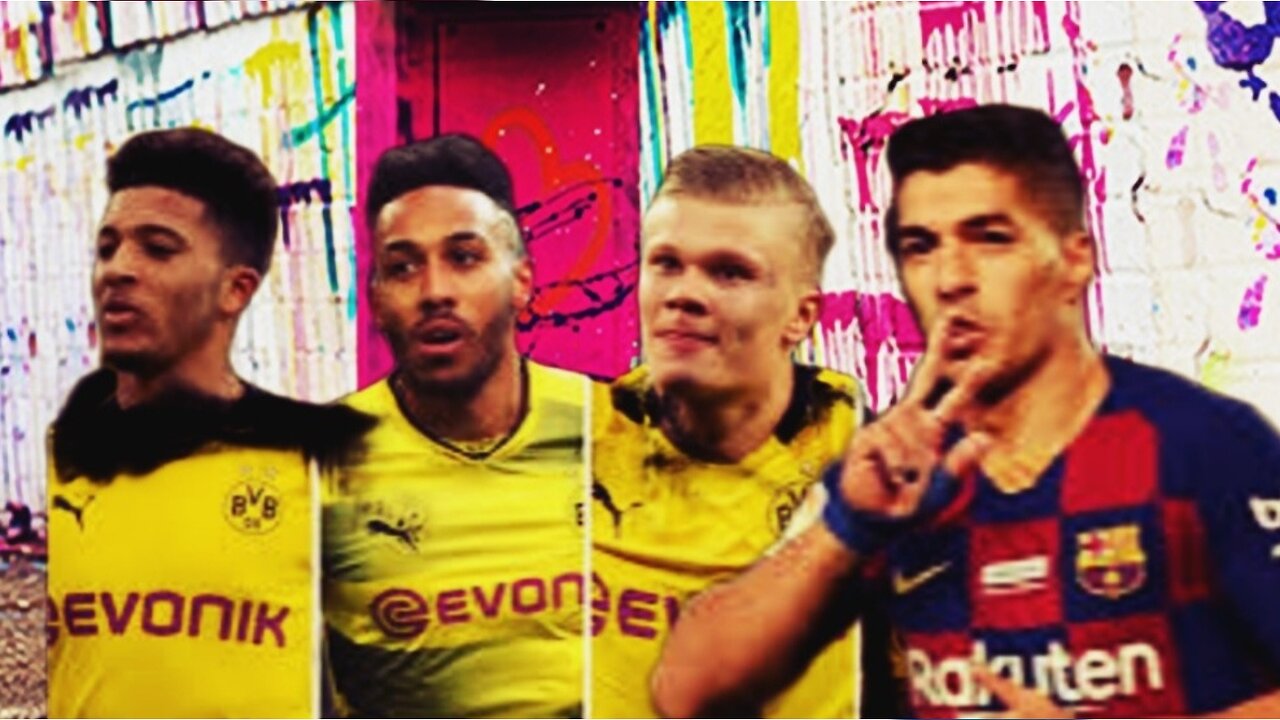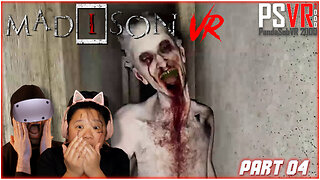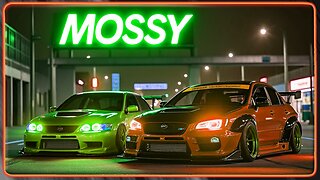Premium Only Content

Dortmund vs Fc Barcelona
Barcelona: A City of Culture, Football, and Timeless Charm
Barcelona, the capital of Catalonia and Spain’s second-largest city, is a vibrant cultural hub that effortlessly blends tradition and modernity. Nestled between the Mediterranean Sea and the Serra de Collserola hills, Barcelona captivates millions of visitors each year with its stunning architecture, historic neighborhoods, rich cultural heritage, and passionate love for football — especially the world-famous FC Barcelona.
A Brief History
Barcelona's history stretches back over 2,000 years. Originally a Roman city known as Barcino, it later became a significant medieval trading center. Over the centuries, it developed into a cultural and political focal point of Catalonia. The city has always maintained a strong identity, deeply rooted in Catalan language, traditions, and autonomy. This pride in heritage plays a central role in the city's politics and social fabric.
In the late 19th and early 20th centuries, Barcelona underwent a dramatic transformation. The city expanded beyond its medieval walls and embraced the Modernisme movement — a uniquely Catalan version of Art Nouveau. Architects like Antoni Gaudí left a permanent mark on the cityscape, creating some of the most iconic buildings in the world.
The Architectural Marvels
Barcelona is renowned for its awe-inspiring architecture, especially the works of Antoni Gaudí. His most iconic masterpiece, the Sagrada Família, is a basilica that has been under construction since 1882 and continues to evolve. With its surreal spires and intricate facades, it’s the most visited monument in Spain.
Other Gaudí landmarks include Park Güell, a whimsical urban park filled with colorful mosaics and imaginative structures, and Casa Batlló and La Pedrera (Casa Milà) — two unique buildings located on Passeig de Gràcia that reflect Gaudí’s distinctive style.
Beyond Gaudí, the city boasts a range of architectural styles, from the Gothic Quarter’s medieval charm to the sleek modern designs found in the city’s business districts and cultural centers.
FC Barcelona: More Than a Club
No discussion about Barcelona is complete without mentioning Futbol Club Barcelona, better known as Barça. Founded in 1899 by Swiss businessman Joan Gamper, the club quickly became a symbol of Catalan pride and identity.
FC Barcelona is not just a football club — it is a powerful cultural and political emblem. The club’s motto, "Més que un club" (“More than a club”), reflects its importance beyond the sport. Throughout the years, especially during the dictatorship of Francisco Franco, when Catalan language and culture were suppressed, Barça served as a rallying point for Catalan nationalism.
On the pitch, Barça has enjoyed immense success. With 27 La Liga titles, 31 Copa del Rey wins, and 5 UEFA Champions League trophies, it is one of the most decorated clubs in the world. Its philosophy emphasizes youth development, beautiful attacking football, and a strong sense of identity. La Masia, the club's academy, has produced legends like Lionel Messi, Xavi Hernández, and Andrés Iniesta.
The club’s rivalry with Real Madrid, known as El Clásico, is one of the most intense and watched sporting events in the world. It’s more than a football match — it’s a clash of cultures, politics, and sporting philosophies.
A Hub of Art and Culture
Barcelona’s art scene is as diverse as it is dynamic. From ancient Roman ruins to contemporary galleries, the city offers a creative feast for all tastes. The Picasso Museum, located in the El Born district, houses one of the most extensive collections of works by Pablo Picasso, focusing on his formative years.
The Joan Miró Foundation celebrates the surrealist artist with a large collection of his works, while the MACBA (Museum of Contemporary Art of Barcelona) showcases cutting-edge modern art in a striking white building in the Raval district.
Music also plays a vital role in the city’s identity. From street performers in Plaça Reial to grand operas at the Gran Teatre del Liceu, and from indie bands at Primavera Sound to electronic beats at Sónar Festival, Barcelona offers a soundscape that mirrors its diversity.
Neighborhoods Full of Character
Barcelona is a city of neighborhoods, each with its own charm and personality. The Gothic Quarter (Barri Gòtic) is a labyrinth of narrow alleys, medieval buildings, and hidden plazas. Nearby, El Raval offers a multicultural vibe, buzzing with street art, trendy bars, and an alternative edge.
Eixample, characterized by its grid-like streets and wide boulevards, is home to many of Gaudí’s masterpieces and upscale shopping avenues. Gràcia, once an independent town, maintains a bohemian, village-like feel with local festivals and artisan markets.
The seaside neighborhoods like Barceloneta and Poblenou blend beach life with urban culture. You can enjoy a day at the beach, dine on fresh seafood, then explore modern art installations and old industrial spaces turned into creative hubs.
Food and Culinary Culture
Barcelona's culinary scene is a paradise for food lovers. Catalan cuisine is rich, diverse, and deeply tied to the Mediterranean diet. Staples include pa amb tomàquet (bread with tomato), botifarra (Catalan sausage), escudella (meat and vegetable stew), and crema catalana, a creamy dessert similar to crème brûlée.
The city is filled with tapas bars, seafood restaurants, and world-class dining establishments. Mercat de Sant Josep de la Boqueria, commonly known as La Boqueria, is a lively market where locals and tourists alike gather to enjoy fresh produce, cured meats, and regional specialties.
Barcelona is also a leader in avant-garde cuisine, thanks in part to chefs like Ferran Adrià, whose restaurant El Bulli revolutionized modern gastronomy. Today, the city boasts multiple Michelin-starred restaurants and a thriving food innovation scene.
A City in Motion
Barcelona is a very walkable city, with excellent public transport including a vast metro system, buses, trams, and even cable cars. For cyclists, the city has invested heavily in bike lanes and public bike rentals.
The Barcelona-El Prat Airport connects the city to major destinations around the world, and the high-speed AVE train makes it easy to travel across Spain.
Challenges and the Future
Despite its many charms, Barcelona also faces challenges. Overtourism has led to rising rents and gentrification in certain areas, prompting debates about sustainable tourism. The city's push for greater autonomy and Catalonia's independence movement continue to stir political tension.
Nonetheless, Barcelona remains a city of resilience and reinvention. With smart urban planning, an emphasis on sustainability, and an ever-evolving cultural scene, it’s continually redefining what it means to be a modern European city.
Conclusion
Barcelona is more than just a destination — it's an experience. Whether you’re wandering through the Gothic Quarter, marveling at Gaudí’s architectural wonders, cheering at Camp Nou, or enjoying tapas by the sea, the city leaves a lasting impression. A rich tapestry of history, art, football, and identity, Barcelona truly is més que una ciutat — more than a city.
---
Would you like this turned into a PDF or tailored for something specific like a blog or presentation? /storage/emulated/0/Download/google6170e9d15902cb37 (6).html
-
 LIVE
LIVE
Due Dissidence
11 hours agoSchmuley TRASHES Shapiro, Maxwell Sings For Pardon, Uhuru Doc Preview - Live From St. Louis!
1,150 watching -
 LIVE
LIVE
Lofi Girl
2 years agolofi hip hop radio 📚 - beats to relax/study to
210 watching -
 LIVE
LIVE
PandaSub2000
5 days agoLIVE 9:30pm ET | MADISON VR (The Scariest Game Ever Made)
94 watching -
 2:34:32
2:34:32
Badlands Media
4 days agoCODEX 9/11
253K188 -
 1:53:43
1:53:43
Nerdrotic
5 hours ago $0.24 earnedMysteries of 3I/ATLAS | Forbidden Frontier #113
35.1K4 -
 2:04:21
2:04:21
vivafrei
1 day agoEp. 278: D.C. Peace Wave! Big Tish & Nipple Judge SPANKED! "Maryland Man" Trafficker FREE & MORE?
79.1K93 -
 LIVE
LIVE
Damysus Gaming
1 hour agoBorderlands 3 - Part 8 - FL4K Time | Children of the Vault be Warned!
48 watching -
 LIVE
LIVE
Patriots With Grit
5 hours agoWhat You Should Know About Harmful Vaccine Ingredients And What To Say To Your Doctor, Pediatrician, Health Department or School When They Pressure You, Your Kids Or Your Family Members | Dr. Bryan Ardis, D.C.
299 watching -
 LIVE
LIVE
This is the Ray Gaming
1 hour agoSunday Night Live with the Boys | Rumble Premium Creator
34 watching -
 LIVE
LIVE
ItsMossy
2 hours ago🍃NEW MIC WHO THIS🍃DRIVING SIM GO BRRR🍃420 SESH🍃
15 watching